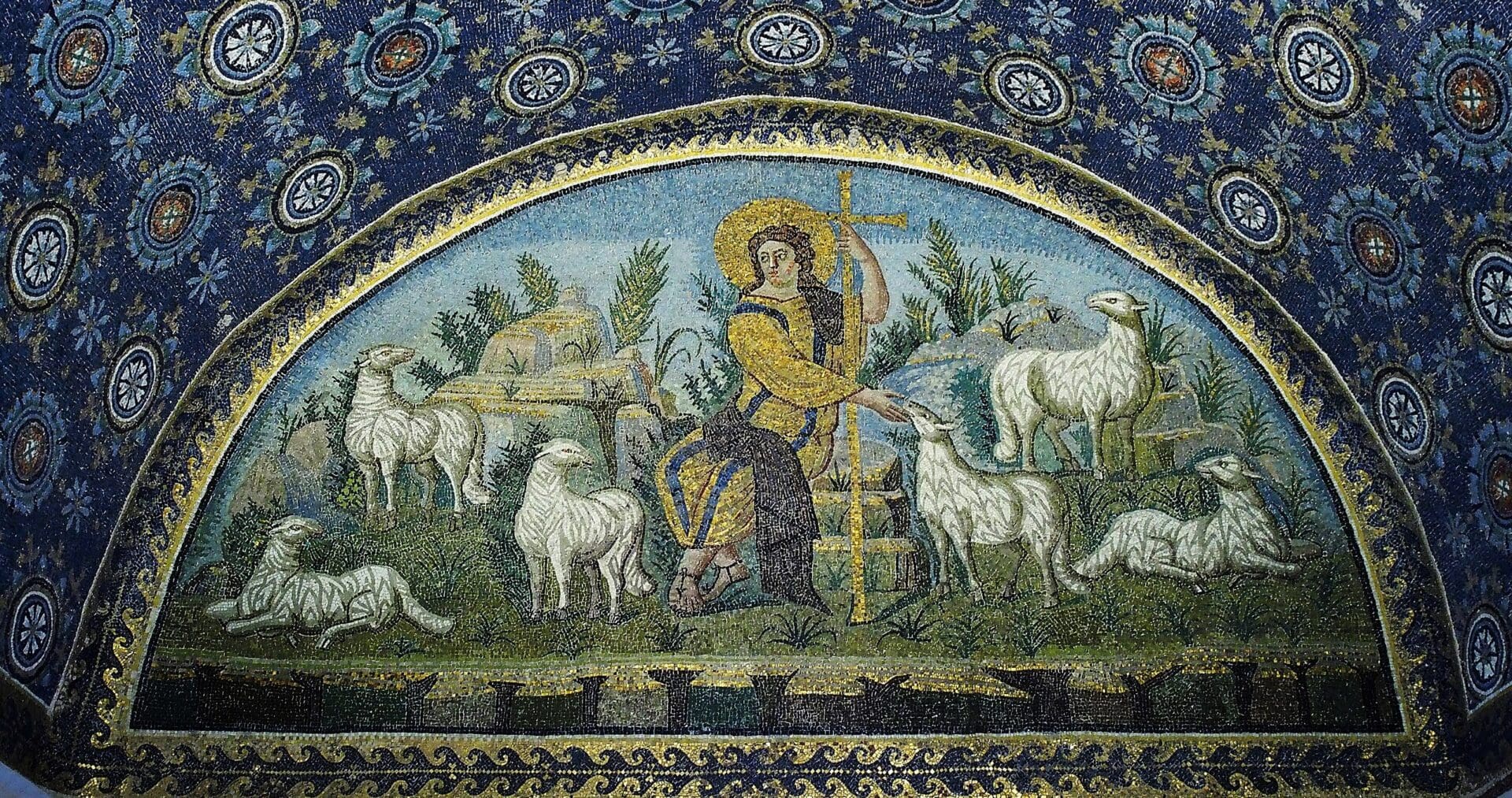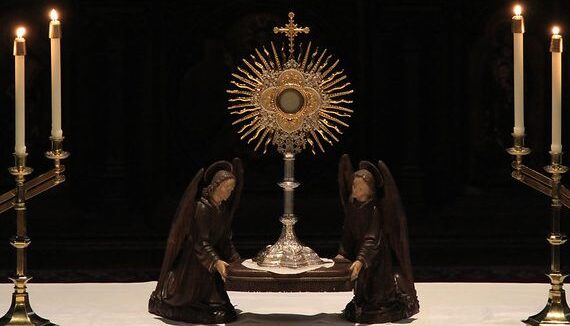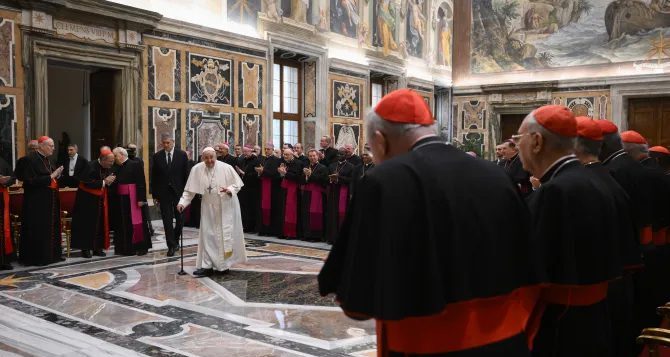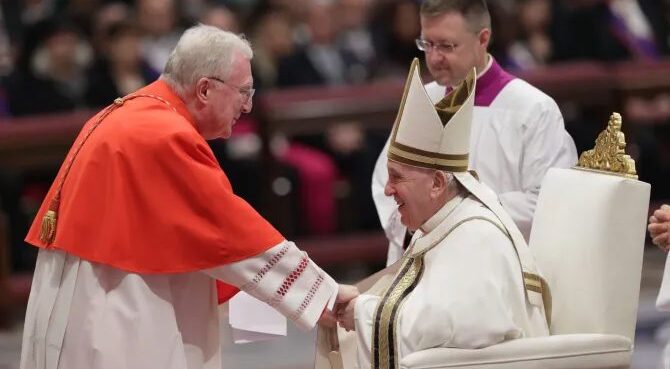The Apostle’s Creed can help us unpack the profound act of worship in reverently uttering the name of Jesus
Rosebud.
Movie enthusiasts will immediately think of the classic 1941 film Citizen Kane. A two-syllable word recapitulates the entire drama and renews speculation—whether it refers to unrequited love, innocence lost, or happiness abandoned. Indeed, our vocabulary is not only laden with meaning, but laden with historical and experiential references.
Individual names embody the most powerful of appeals. Dale Carnegie—author of How to Win Friends and Influence People—insists: “Remember that a person’s name is, to that person, the sweetest and most important sound in any language.”
The reverent declaration of the name of Jesus is a profound and beautiful act of worship. The name Jesus derives from Hebrew and means “to deliver; to rescue” or “savior.” It encompasses the unity of God and man and history and eternity. The name of Jesus attaches a personal identification to the prophecy of Isaiah: “Behold, a young woman [or virgin] shall conceive and bear a son, and shall call his name Immanuel” (7:14). Jesus of Nazareth is forever “God with us.”
The Gospels, Church teaching, and the Apostle’s Creed unpack the unique meaning of the name of Jesus. “And the Word became flesh and dwelt among us, full of grace and truth; we have beheld his glory, glory as of the only Son from the Father” (John 1:14). Jesus is the Word, the Second Person of the blessed Trinity, true God and true man, who assumed human nature.
I believe in God, the Father Almighty,
Creator of heaven and earth;
and Jesus Christ, his only Son, our Lord,
who was conceived by the Holy Spirit,
born of the Virgin Mary.
The name of Jesus represents his saving mission. “For I have come down from heaven, not to do my own will, but the will of him who sent me” (John 6:38). Jesus, the Word made flesh, fulfills another prophecy of Isaiah: “So shall my word be that goes forth from my mouth; it shall not return to me empty, but it shall accomplish that which I purpose, and prosper in the thing for which I sent it” (55:11). In fulfillment of the Father’s will:
He suffered under Pontius Pilate,
was crucified, died, and was buried;
he descended into hell;
on the third day, he rose again from the dead;
he ascended into heaven,
and is seated at the right hand of God the Father almighty;
from thence he will come to judge the living and the dead.
With his mission accomplished after the cross, the Resurrection, and the Ascension, the Word is not distant and isolated from us. He remains Immanuel. He sends the Holy Spirit upon us and fulfills His promise that “it is the spirit that gives life . . . the words that I have spoken to you are spirit and life” (John 6:63) His Spirit purifies us our contrite hearts of sin and incorporates us into his mystical body, the Church, by baptism, and we are united to his mystical body in grace:
I believe in the Holy Spirit,
the holy Catholic Church,
the communion of saints,
the forgiveness of sins.
Not only does the Mass re-present the drama of the cross and the Resurrection, but the sacred liturgy also mysteriously re-enacts the Incarnation. The Liturgy of the Word is the voice of Jesus and reveals our history and destiny. The Prayers of the Faithful challenge us to invoke his name in faith, but only to glorify the Father: “Whatever you ask in my name, I will do it, that the Father may be glorified in the Son; if you ask anything in my name, I will do it” (John 14:13-14).
The Liturgy of the Eucharist fulfills and completes the Liturgy of the Word and reunites us with the eternal Word in Holy Communion. The priest—who received Jesus’ priesthood at his ordination—shares Jesus’ role as mediator and invokes the Holy Spirit upon the gifts in the epiclesis immediately preceding the consecration of the bread and wine. And the Word again becomes flesh and dwells among us.
Holy Communion—the body, blood, soul, and divinity of Jesus—brings us into personal contact with the living God! “He who eats my flesh and drinks my blood has eternal life, and I will raise him up at the last day” (John 6:54).
In our humanity, grace unites us to the glorified risen body of Christ, and we anticipate heavenly glory: “What no eye has seen, nor ear heard, nor the heart of man conceived, what God has prepared for those who love him” (1 Cor. 2:9).
[I believe in] the resurrection of the body
and life everlasting.
Amen.
When grace incites us to pronounce the name of Jesus with reverence, we not only worship him, but become his friends. We allow him to share his divine intimacy through his humanity: “No longer do I call you servants, for the servant does not know what his master is doing; but I have called you friends, for all that I have heard from my Father I have made known to you” (John 15:15).
When we say “Jesus” with reverence, we discover the greatness of our humanity. We see the hand of Providence in history. We rejoice in a hopeful vision of the future. The name of Jesus on our lips reconciles us to God and eternity. In his name, our word becomes his word.
No word is more sacred, intimate, and laden with meaning than the holy name of Jesus. “At the name of Jesus, every knee should bow, in heaven and on earth and under the earth” (Phil. 2:10).
Jesus.
This article from Fr. Pokorsky originally appeared on the Catholic Answers website and can be found here.



